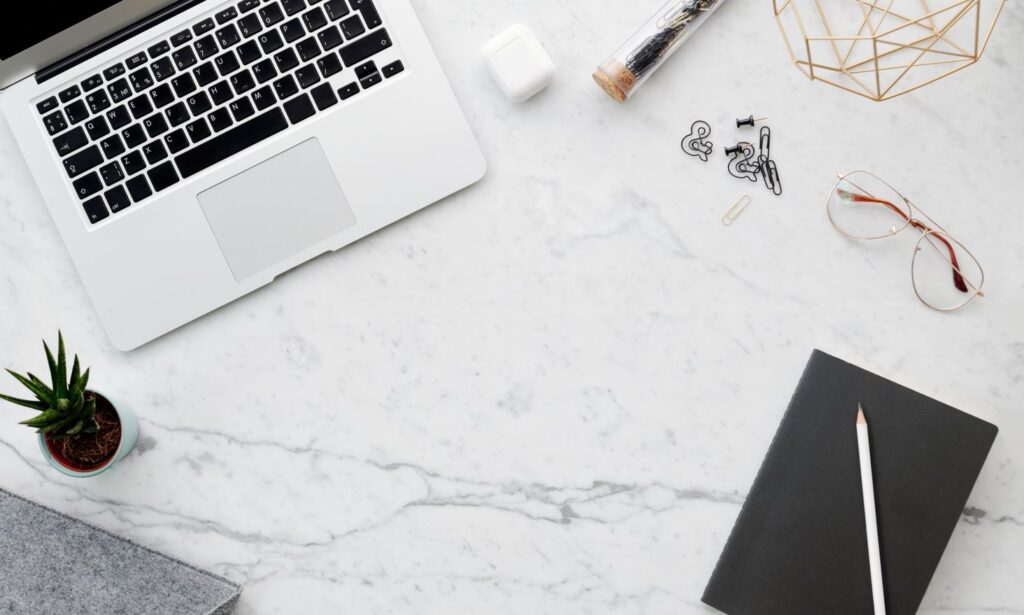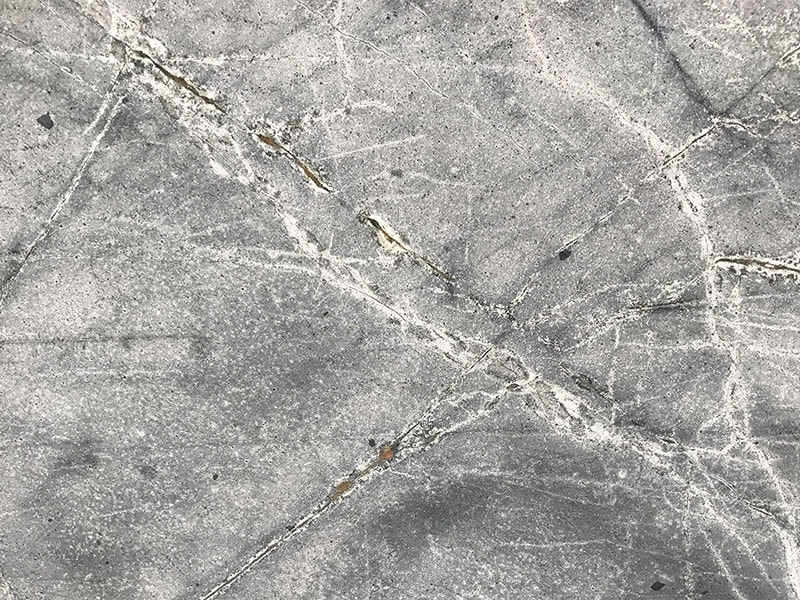Because of their longevity, attractiveness, and ease of care, quartz countertops have quickly gained popularity in kitchens and bathrooms. However, knowing the right way to maintain your quartz countertop will ensure that it retains its pristine appearance. In this detailed tutorial, you'll learn all you need to know to keep your quartz countertop in excellent condition.
Learning About Quartz Countertops
First, let's define quartz countertops and discuss why they're so popular before discussing how to clean them.
What Exactly Is a Quartz Countertop?
Quartz is a popular synthetic material for countertops because it is durable and easy to clean. Quartz countertops are made primarily of minerals. Quartz gets its durability, stability, and seeming depth from this.
Quartz is an artificial stone made from crushed and pressed stone-like materials held together with resins. It is preferable to other stone counter materials since it never needs to be sealed. Its resins function as adhesives. Many like its more organic appearance and feel than artificially produced solid surface counters.
Quartz Countertop Care and Maintenance
Quartz is a popular choice for worktops because it is long-lasting, aesthetically pleasing, and requires little upkeep; these factors explain why natural stone surfaces are so popular among homeowners. Most quartz counters have resin, so the surface is dense and cannot be dented, chipped, or cracked. As a result, you can stop worrying so much about dishes and pots and pans banging against the counter. Quartz countertops are long-lasting because they resist stains and don't provide a breeding ground for mould and bacteria.
Quartz countertops are durable and low-maintenance, but they should be cleaned to stay looking new. Quartz countertops should be cleaned with a gentle, abrasive cleaner. Quartz's firm finish makes wiping away dirt and grime simple, but aggressive cleansers and instruments can scratch the surface. Quartz countertops can usually be cleaned with dish soap and water, but you may need a stronger cleaner in extreme cases.
Here are the simple steps for cleaning quartz countertops:
Required Materials
Get these together before you begin cleaning your quartz countertop:
- Weak dishwashing liquid
- Tender heat
- Ethanol rub
- Watering can
- Soft sponges or rags without abrasives
Quick Cleaning Guide
Clear the Clutter
Clean quartz countertops by wiping them down. Clear off the counter of any decorative items, including fruit dishes. Put away any toasters, mixers, or other similar small appliances. After wiping down the countertops, you can check out this manual for cleaning small appliances (if they are unclean). Crumbs and other waste can be swept up with a paper towel and discarded, and the counter can be thoroughly cleaned with a moist cloth.
Scrub Out the Greasy Grime
While the quartz countertops may appear clean after the first step, some accumulation will likely require additional scrubbing. Soak a gentle sponge in water and apply a small amount of dish soap. Scrub in a zigzag motion, using light pressure, beginning at the backsplash. After soaking in soap and water, remove difficult buildup using a plastic putty knife.
Cleanse the Leftovers
Don't rely on your vision to tell you when you've finished cleaning enough. Smooth the counter with your hand while it is still wet. Any rough spots will be immediately apparent when you run your finger over an area to check for buildup or dirt. After scrubbing the counters, wipe them off with a moist sponge to eliminate any remaining grime. Sponge-wash as often as necessary to remove soap residue and grime.
Clean and Disinfect the Area
After washing quartz worktops, disinfection reduces bacteria and cross-contamination in the kitchen and bathroom. A spray bottle of water needs 1/4 cup of rubbing alcohol. Apply a thick coat of your homemade sanitiser and set it for about five minutes or until the quartz countertops are nearly dry.
Make it shine by buffing it dry.
Don't wipe down your quartz countertops afterwards with a damp cloth if you want the sanitiser to remain effective. Instead, dry the quartz with a microfiber cloth and buff it to a brilliant sheen to remove any lingering moisture. Sometimes, even when familiar with the best practices for cleaning quartz countertops, some stains will remain despite your best efforts.
Quartz Countertop Stain Removal
Ink, Grease, and water stains are difficult to remove from even stain-resistant surfaces like quartz countertops. Quartz countertops are quite durable, but like any surface that gets stained, you need to act fast.
Grease Stains
Although most grease spills won't leave permanent stains on quartz countertops, they can leave a film that makes the surface look dull and encourages the spread of bacteria. Greasy stains can be removed by soaking them in a dish soap and water solution for about five minutes. Saturate the soiled surface with distilled white vinegar and then wipe it down with a dry cloth to remove any leftover grease.
Ink and Paint Stains
Quartz countertops are particularly vulnerable to the discolouration caused by ink and paint, which can be left behind by children's crafts, home improvement projects, and other messy endeavours. Instead of using chemical stain removers, try using hairspray and toothpaste. Use hairspray to cover the stain completely, then wait five minutes. To remove a stain, pat it with a clean cloth until as much of it is absorbed as possible, then wipe the area down with a clean, moist cloth. If necessary, the steps can be repeated. We also have you covered if any ink gets onto your clothing while washing.
Water Stains
When tap water evaporates, calcium and lime can discolour quartz and other natural stone countertops. Although soap and water may not effectively remove these chalky stains, baking soda always does the trick. Rub the water stain liberally with a paste of a few tablespoons of baking soda and water. Incorporate the cleaning substance into the stain using a damp cloth, and then remove any traces using a third, clean cloth dipped in water.
We've covered the basics of cleaning quartz countertops and removing common stains, so now we can move on to more advanced topics like routine upkeep and repair.
FAQs About Masonry
Unlike natural stone, quartz countertops are engineered and typically do not require sealing, as they are non-porous. Check with the manufacturer for specific recommendations.
Quartz is heat-resistant, but it's advisable to use hot pads or trivets to protect the surface from extreme heat, as prolonged exposure to high temperatures can damage the resin.
Avoid using abrasive or scouring pads on quartz, as they can scratch the surface. Stick to soft cloths, sponges, or gentle scrubbing brushes.
While quartz cleaner is formulated for quartz surfaces, it can often be used on other surfaces like stainless steel or glass, but it's best to consult the product label for specific instructions.
It's recommended to clean your quartz countertop daily with a mild soap and water solution. For deeper cleaning and stain removal, perform a more thorough cleaning every week or as necessary.
Maintaining Quartz Countertops
Quartz countertops need minimal effort in day-to-day upkeep. You may easily clean the countertop by using a soft cloth and some warm water. The countertops' durability and aesthetic attractiveness depend on how well you care for them.
If you have quartz countertops, here are some terrific maintenance recommendations for keeping them clean and in good condition.
Don't Put Anything Hot Directly On The Surface.
Remember that, unlike granite countertops, quartz is not resistant to heat. Avoid placing hot items on the quartz countertop if you value its original appearance. Avoid placing hot cookware, such as a roasting pan or skillet, directly on the countertop.
Surface fractures can form as a result of thermal shocks. To protect your surfaces from being scorched, use trivets and hot pads.
Don't Use Harsh Chemicals When Cleaning.
Quartz countertops are delicate and should be protected from harsh chemicals. It would help if you did not use any pumice-containing cleaning agents, including bleach or oven cleaners. You also shouldn't clean the surface with anything abrasive, such as oil soaps, paint thinners, silver cleaners, or furniture polish.
Quartz countertops are susceptible to damage from the following types of cleaners:
- Cleaning supplies that contain acids
- Cleansing agents with alkaline pH
- To remove nail polish, using
- Granite sinks and granite countertop cleaners
- Cleansers for the oven or stainless steel
- Products with or containing bleach
A wide variety of different substances can also damage quartz. If the bottle doesn't specifically state that it's safe for use on quartz, you shouldn't use it on your counter.
When Cleaning, Never Use Anything Abrasive.
Abrasive materials should also be avoided because of the surface damage they cause. Also, no knives should be used.
Directly on the quartz countertops' surface, as they are easily scratched. Using abrasive or sharp items on the counters might cause damage to the surface. This is vital advice for taking care of your quartz countertops. A soft cloth is preferable to sharp abrasives.
Even if you accidentally cut it with a knife or drop something heavy, your quartz should be fine. However, we urge you to treat this as an outlier rather than the norm. Avoid slamming things down into the countertop, and keep using a cutting board while slicing fruits and veggies. If you apply too much pressure to the stone's surface, it may shatter or chip.
Quartz is usually safe against blades. After all, quartz is one of the hardest stones available. However, it risks leaving a mark by damaging the protective resin coating. In addition, your blades will certainly get severely dull after being used on quartz. Put your cutting boards away after use. You should get some.
Keep Away From Permanent Markers
Quartz countertops should be protected from permanent markers. The surface may be marred, and it may be difficult to remove the marks. Permanent ink stains on the countertop can be removed with normal cleaning products.
If the stain persists after cleaning with water, try applying glue remover to the towel and rubbing the stone. Warm water should thoroughly rinse the countertop to remove any remaining cleaning.
Preventing Quartz From Being Stained
Every homeowner has flaws. If they spend enough time cooking, someone will inevitably spill something in the kitchen. Quartz's resistance to most stains is one of its many advantages. Stains are usually easy to remove by wiping.
But it's also conceivable for foods to have varying effects. The following is a short list of common sources of discolouration on quartz surfaces:
Spices
Curry, paprika, turmeric, and chilli powder are brightly coloured spices that can leave a mark on your kitchen surface. These are some of the most often dropped items in the kitchen. Fortunately, this discolouration is mostly superficial. You can remove curry spills using a moist towel and dish soap.
Tomato Sauces
Tomatoes' acidity and colour can make them difficult to remove off surfaces, as any homeowner who has dealt with stained Tupperware can attest. It's important to promptly wipe up any hot or tomato sauce spilling on the kitchen counter. If the sauce stain has already dried, try the solutions below.
Food Coloring
Due to its nature as a dye, food colouring may cause temporary staining if it comes into contact with your quartz. When applying food colouring to a dish, it's best to do so while standing over a sink to avoid staining your feet. After being stained by food colouring, quartz should be cleaned as soon as possible.
Establish Routines For Daily Cleaning And Maintenance
Keep your quartz countertops looking new by avoiding buildup and stains with regular wiping with dish soap and water. Putty knives made of plastic should be kept in a drawer with other kitchen utensils so they can be used to scrape gum and other sticky messes before they harden. Also, remember to wipe down and sanitise your counters often.
As you may have figured by now, it's just as vital to know what not to do as it is to know what to do when cleaning quartz countertops. Quartz countertops are low maintenance compared to other natural stones, yet they can still be damaged by carelessness.
Conclusion
Quartz countertops are a popular choice due to their durability, attractiveness, and ease of maintenance. They are made from crushed and pressed stone-like materials held together with resins, making them preferable to other stone counter materials. Quartz countertops are long-lasting, aesthetically pleasing, and require little upkeep, making them a popular choice for homeowners.
Quartz countertops can be stained by ink, grease, and water, but they are durable and can be removed quickly. Greasy stains can be removed by soaking them in a dish soap and water solution, saturating the surface with distilled white vinegar, and then wiping it down with a dry cloth. Ink and paint stains can be removed using hairspray and toothpaste, covering the stain completely and waiting five minutes before removing it.
Quartz countertops are not resistant to heat, so it is important to avoid placing hot items directly on the surface. Instead, use trivets and hot pads to protect surfaces from scorching. Avoid using harsh chemicals like bleach or oven cleaners, as well as abrasive materials like oil soaps, paint thinners, silver cleaners, or furniture polish.
Abrasive materials should be avoided, and knives should be used only when necessary. Quartz is generally safe against blades, but it risks leaving marks due to damaging the protective resin coating. Keep cutting boards away after use and buy some for your quartz countertops.
Placing permanent markers on quartz countertops can cause marring and difficulty in removing marks. If stains persist after cleaning with water, apply glue remover and rinse thoroughly.
Spices, tomato sauces, and food coloring can cause discolouration on quartz surfaces. Remove curry spills with a moist towel and dish soap, wipe up hot or tomato sauce spills promptly, and clean the countertop immediately after being stained. Establish daily cleaning routines with dish soap and water, and keep plastic-based utensils in a drawer for easy cleaning.
While quartz countertops are low maintenance compared to other natural stones, they can still be damaged by carelessness. Regular wiping with dish soap and water, using plastic-based utensils, and sanitizing your counters are essential for maintaining their appearance and durability.
Content Summary:
- However, knowing the right way to maintain your quartz countertop will ensure that it retains its pristine appearance.
- In this detailed tutorial, you'll learn all you need to know to keep your quartz countertop in excellent condition.
- Quartz countertops should be cleaned with a gentle, abrasive cleaner.
- While the quartz countertops may appear clean after the first step, some accumulation will likely require additional scrubbing.
- Smooth the counter with your hand while it is still wet.
- After scrubbing the counters, wipe them off with a moist sponge to eliminate any remaining grime.
- Sponge-wash as often as necessary to remove soap residue and grime.
- After washing quartz worktops, disinfection reduces bacteria and cross-contamination in the kitchen and bathroom.
- Apply a thick coat of your homemade sanitiser and set it for about five minutes or until the quartz countertops are nearly dry.
- Make it shine by buffing it dry.
- Don't wipe down your quartz countertops afterwards with a damp cloth if you want the sanitiser to remain effective.
- Sometimes, even when familiar with the best practices for cleaning quartz countertops, some stains will remain despite your best efforts.
- Removal Ink, Grease, and water stains are difficult to remove from even stain-resistant surfaces like quartz countertops.
- Instead of using chemical stain removers, try using hairspray and toothpaste.
- When tap water evaporates, calcium and lime can discolour quartz and other natural stone countertops.
- Rub the water stain liberally with a paste of a few tablespoons of baking soda and water.
- We've covered the basics of cleaning quartz countertops and removing common stains, so now we can move on to more advanced topics like routine upkeep and repair.
- Quartz countertops need minimal effort in day-to-day upkeep.
- You may easily clean the countertop by using a soft cloth and some warm water.
- If you have quartz countertops, here are some terrific maintenance recommendations for keeping them clean and in good condition.
- Remember that, unlike granite countertops, quartz is not resistant to heat.
- Avoid placing hot items on the quartz countertop if you value its original appearance.
- To protect your surfaces from being scorched, use trivets and hot pads.
- If the bottle doesn't specifically state that it's safe for use on quartz, you shouldn't use it on your counter.
- Directly on the quartz countertops' surface, as they are easily scratched.
- Using abrasive or sharp items on the counters might cause damage to the surface.
- This is vital advice for taking care of your quartz countertops.
- Quartz is usually safe against blades.
- Put your cutting boards away after use.
- Quartz countertops should be protected from permanent markers.
- Permanent ink stains on the countertop can be removed with normal cleaning products.
- You can remove curry spills using a moist towel and dish soap.
- It's important to promptly wipe up any hot or tomato sauce spilling on the kitchen counter.
- When applying food colouring to a dish, it's best to do so while standing over a sink to avoid staining your feet.
- After being stained by food colouring, quartz should be cleaned as soon as possible.
- Keep your quartz countertops looking new by avoiding buildup and stains with regular wiping with dish soap and water.
- Also, remember to wipe down and sanitise your counters often.


